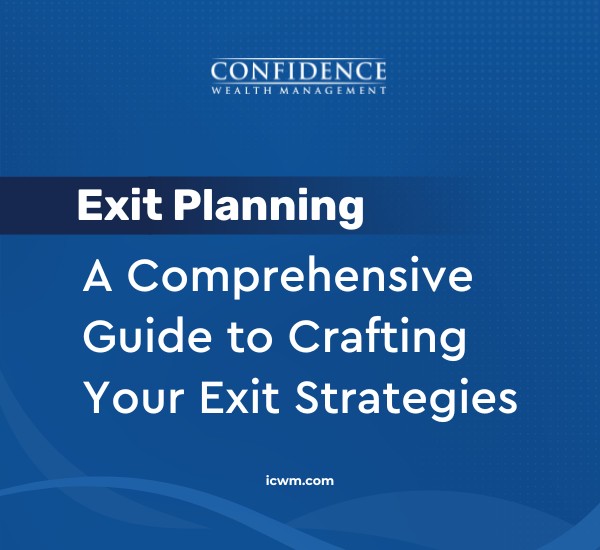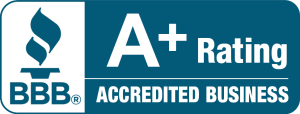If you own a business, there will come a time when you must decide when you’ll step away and how you’ll do it.
While there are many estate planning tools you can use to transfer your business, picking the right one depends on your unique goals.
If you plan to transfer your business to your children or others, you’d probably like to do so at its full value. It takes careful planning to avoid taking from your assets to pay gift, income, and estate taxes, all of which could leave little left for your beneficiaries.
A quality business succession plan ensures the continuity of the business while also taking on the least taxes.
We’ll explain some of the best strategies for family business succession planning below.
You May Get Some Relief Under the Internal Revenue Code
If you’re prepared to transfer some of your business interest to your beneficiaries, a systematic gifting program can help you accomplish this while minimizing the federal gift and estate tax liability. You can do this by gifting up to $16,000 (in 2022) per year per recipient.
By transferring portions of your business in this way you might manage to transfer a significant chunk of it without incurring transfer tax. The disadvantage is how long it will take to transfer your entire estate.
In addition, Section 6166 of the Internal Revenue Code allows any federal gift and estate tax incurred because of the inclusion of a closely held business in your estate to be deferred for 5 years (with interest-only payments for the first four years) and then paid in annual installments for up to 10 years (installment payments include both principal
and interest).
This allows your beneficiaries more time to raise sufficient funds or obtain more favorable interest rates.
Selling Your Business Interest Outright
When you sell your business interest to a family member or someone else, you receive cash (or assets that you can convert to cash) which can be used to maintain your lifestyle or pay transfer taxes.
You choose when to sell, and as long as it’s for the full fair market value (FMV) of the business, it is not subject to transfer taxes. However, if the sale occurs while you’re alive, it may be subject to capital gains tax.
Transferring Your Business with a Buy-Sell Agreement
A buy-sell agreement is a legal contract that arranges the future sale of your business interest between you and a willing buyer.
A buy-sell agreement lets you keep control of your interest until the occurrence of an event that the agreement specifies, such as your retirement. When a triggering event occurs, the buyer is obligated to buy your interest from you or your estate at the FMV.
The buyer can be a person, a group (such as co-owners), or the business itself. Price and sale terms are prearranged, which eliminates the need for a fire sale if you become ill or pass away.
You are bound under a buy-sell agreement, which means you can’t sell or give your business to anyone except the buyer named in the agreement without the buyer’s consent. This could restrict your ability to reduce the size of your estate through lifetime gifts of your business interest unless you carefully coordinate your estate planning goals with the terms of your buy-sell agreement.
Grantor Retained Annuity Trusts or Grantor Retained Unitrusts
A more sophisticated business succession tool is a grantor retained annuity trust (GRAT) or a grantor retained unitrust (GRUT). GRAT/GRUTs are irrevocable trusts to which you transfer appreciating assets while retaining an annuity or unitrust payment for a set period.
In general, an annuity means you receive fixed periodic payments, while a unitrust means you receive payment of a fixed percentage of trust assets (revalued annually). At the end of the annuity or unitrust payment period, the assets in the trust pass to the other trust beneficiaries (the remainder beneficiaries).
The value of the retained annuity or unitrust interest is subtracted from the value of the property transferred to the trust (i.e., a share of the business), so if you live beyond the specified payment period, the business may be ultimately transferred to the next generation at a reduced value for transfer tax purposes.
Private Annuities
A private annuity is the sale of property in exchange for a promise to make payments to you for the rest of your life.
Here, you transfer complete ownership of the business to family members or another party (the buyer). The buyer in turn makes a promise to make periodic payments to you for the rest of your life (a single-life annuity) or your life and the life of a second person (a joint and survivor annuity).
A joint and survivor annuity provides payments until the passing of the last survivor; that is, payments continue as long as either the husband or wife is still alive. Again, because a private annuity is a sale and not a gift, it allows you to remove assets from your estate without incurring transfer taxes.
Until very recently, exchanging property for an unsecured private annuity allowed you to spread out any gain realized, deferring capital gains tax. Proposed regulations have effectively eliminated this benefit for most exchanges, however.
Self-Canceling Installment Notes
A self-canceling installment note (SCIN) allows you to transfer the business to the buyer in exchange for a promissory note. The buyer must make a series of payments to you under that note.
A provision in the note states that at your passing, the remaining payments will be canceled.
SCINs provide for a lifetime income stream and avoidance of transfer taxes similar to private annuities. Unlike private annuities, SCINs give you a security interest in the business.
Family Limited Partnerships
A family limited partnership can also assist in transferring your business interest to family members.
First, you establish a partnership with both general and limited partnership interests. Then, you transfer the business to this partnership.
You retain the general partnership interest for yourself, allowing you to maintain control over the day-to-day operation of the business.
Over time, you gift the limited partnership interest to family members. The value of the gifts may be eligible for valuation discounts as a minority interest and lack of marketability. If so, you may successfully transfer much of your business to your heirs at significant transfer tax savings.
Conclusion
There are a dizzying array of options available if you’re a business owner looking to create a seamless family
succession plan.
As experienced financial professionals, we help clients like you figure out the best retirement plan for their situation, so that when they’re ready they can retire gracefully with peace of mind.
Please connect with us and let us help you plan for your dream retirement. We would be delighted to go on the journey with you.










